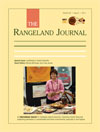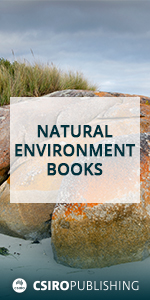
The Rangeland Journal
Volume 33 Number 4 2011
Livelihoods in Desert Australia
RJ11012 Co-benefits of large-scale renewables in remote Australia: energy futures and climate change
Climate change impacts and peak oil could adversely impact desert/remote Australia, but it has abundant renewable energy resources that could be harnessed to provide not only near-zero greenhouse gas emissions energy but jobs and income. This could power Australia while helping to solve social problems in remote communities. This needs investment in large-scale renewable technologies, an extended electrical grid, and/or local energy applications such as energy-intensive industries including generating transport fuels (battery powered vehicles, electrified railways, hydrogen for fuel cells or ammonia used like LPG). Rising prices for diesel could be a major incentive, while local involvement and start-up incentives will be needed.
RJ11012 Abstract | RJ11012 Full Text | RJ11012PDF (286 KB) Open Access Article
RJ11022 Supporting cross-cultural brokers is essential for employment among Aboriginal people in remote Australia
Employment rates are low among Aboriginal people living in remote regions of Australia, even in remote places where there are employment opportunities. Brokers who can bridge and link Aboriginal individuals and their dense social networks to potential employers are essential for Aboriginal people to be able to obtain trusted information on jobs and have entrée to employment opportunities. To improve employment outcomes and expand livelihood options for Aboriginal people in remote Australia, it is essential to recognise, support and recruit brokers.
Australian rangelands are human-environment systems at risk from the interactions among many unpredictable ecological and social changes. To understand how to more effectively sustain rangelands, I compared scientific, pastoral, Aboriginal and government publications and found that all groups identified six important assets: landscape, biodiversity, flexibility, skill, information and networks. If rangeland groups work together to build livelihoods that strengthen those assets, we can develop more secure lives and sustain the environment upon which we depend.
RJ11024 Attracting and retaining skilled and professional staff in remote locations of Australia
A large proportion of Australia’s wealth is derived from the country’s remote regions but despite industry growth in these places over the last decade, many organisations find it difficult to attract, let alone retain, staff. Turnover of staff leads to a loss of knowledge of conditions, people, opportunities and cultural differences in remote locations causing significant economic, social and environmental costs and frustrations for all spheres of government and business. This paper examines a variety of strategies developed to more effectively attract and retain staff to remote locations.
RJ11025 Application of an integrated multidisciplinary economic welfare approach to improved wellbeing through Aboriginal caring for country
Closing the gap in the health of Aboriginal Australians, the prevention and mitigation of greenhouse gases, and maintaining biodiversity are important national policy issues. All these policy issues will benefit through traditional land management practices being carried out by Aboriginal Australians – with substantial national and private economic benefits. Such benefits, it is shown, are more likely to be achieved when people are resident in small family groups rather than large settlements.
RJ11025 Abstract | RJ11025 Full Text | RJ11025PDF (265 KB) Open Access Article
RJ11026 Why tourism may not be everybody's business: the challenge of tradition in resource peripheries
Rural and remote regions often struggle to diversify their resource dependent economies due to issues of institutional lock-in. This paper examines the case of tourism development in remote South Australia and explains how the institutional legacies inherited from resource dependence can stifle local innovation capacity in tourism. The paper concludes that in-migrants and external human capital are critical in the process of developing an innovative regional tourism industry in a traditional resource periphery.
RJ11027 Representatives in orbit: livelihood options for Aboriginal people in the administration of the Australian desert
Aboriginal people comprise ~30% of the Northern Territory population, but make up well under 10% of the government bureaucracy designed to serve that population. This paper is based on PhD research into Aboriginal experiences of participating in this bureaucracy conducted by interviews. The paper concludes by observing that the knowledge and experience of Aboriginal people who orbit at the edges of government may be made more accessible through collaborations with the Indigenous sector than solely through government employment.
RJ11028 No bush foods without people: the essential human dimension to the sustainability of trade in native plant products from desert Australia
Job opportunities and livelihoods for desert Aboriginal people are a national concern. Many Aboriginal women work to harvest and sell bush food species; providing supplementary income and cultural benefits. Produce is sold to traders who on-sell to food and mining rehabilitation industries. But how sustainable is this trade? We found social and economic factors rather than ecological factors to have more influence on sustainability. As the Australian native food industry grows, investment should support Aboriginal families to harvest from their lands.
RJ11031 Attention to four key principles can promote health outcomes from desert Aboriginal land management
Engagement by Aboriginal people in land management can improve Aboriginal health which is a critical national issue. Yet there is little guidance available about how these health outcomes might best be achieved. From our research we developed principles that will help ensure desert Aboriginal land management impacts positively on psycho-social determinants of health. The principles are a guide for good practice and a foundation for building integrated social and environmental outcomes.



